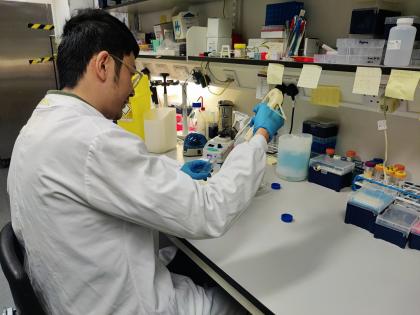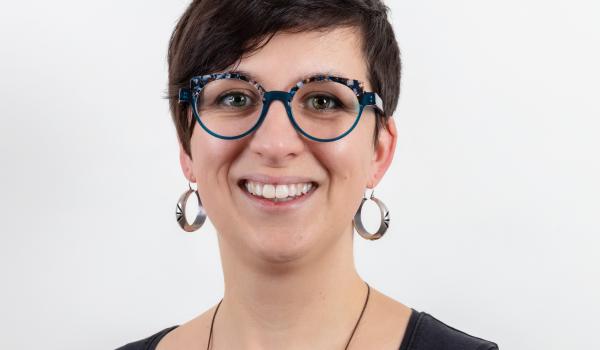Research is a cornerstone of Target Ovarian Cancer’s work. We fund research into developing new and better treatments for ovarian cancer.
Everyone wants a cure for ovarian cancer. And in the meantime, we want better treatments that not only prolong survival but are also personalised to the individual. Personalisation means tailoring treatments to the biology of each person’s tumour, making them more effective and reducing unnecessary side-effects.
The kind of research that we have funded at Target Ovarian Cancer is called translational research. Translational research translates basic lab science into results that can be used in clinical practice. For example, this could be to identify potential treatments to take into clinical trials, and ultimately lead to new drugs and treatments, or to further understand what the effects of drugs are on different tumours.

For example, in one of our funded projects, Professor Charlie Gourley looked at results from a clinical trial in low grade serous ovarian cancer and was able to identify groups of patients who reacted differently to the drugs tested in that trial. This shows which patients the drug trametinib is most likely to help, and which patients need new treatments.
What are scientific publications?
Researchers publish their work in academic journals such as the Nature Genetics or The Lancet. Publications used to be locked away at university libraries, but they are now more available online. Anyone can pay to read a publication, and this usually costs around £30. Increasingly publications are becoming open access which is important because it means that the people who pay for the research – that is all of us who donate to charities or pay our taxes – can read the work for free.
Academic papers are peer reviewed, which means that other researchers will read the work and comment on it to improve it and provide some validation of the methods. This is the best way to try to ensure that publications are accurate and correct.
Once the work is published it is available for other scientists to use and build on in their own research. It is also important for other researchers to test that the results can be replicated in other laboratories. Vitally, it is also available for policy makers to use as clinical trials to underpin the development of guidelines that clinicians use to treat patients.
How do we know if our research is making a difference?
The full impact of our work will be seen in the future; when the findings from our translational work have been used by researchers to develop life-saving treatments. But how can we get a sense of what our researchers have achieved before new drugs hit the clinic?
We have seen that publications are useful to share results and inform other research and guidelines. They are also useful to us as a funder because they give an early indication of the impact of the projects we have funded. If our research projects lead to a publication (or two or even three!) then we know that the research is seen as high quality and important enough to publish by other experts in ovarian cancer research.
We are proud that our funded researchers have published their research in 12 papers to date.
Another indication of how much impact a research project is having is the number of citations. Citations are where another researcher has mentioned (cited) a publication in their own publication. These 12 publications have already been citied 438 times, showing that the results from this Target Ovarian Cancer-funded work are being used by other researchers.
Read more about our research projects
- Written by Emma Dennett
-
Emma manages the research programme at Target Ovarian Cancer, working with researchers, clinicians, and research champions to select the highest quality projects for the charity to fund. She also supports the researchers to share their results. Emma has a PhD in chemistry from the University of Birmingham and worked on medicinal chemistry as a postdoctoral researcher at the Institute of Cancer Research in Sutton. She left the laboratory behind and worked at Cochrane managing a group that published systematic reviews that evaluated evidence from clinical trials on respiratory diseases, whilst also writing her own systematic reviews. Emma loves to support people with their research and disseminate their findings. In her free time, she makes her own clothes and is part of a climate action group.




